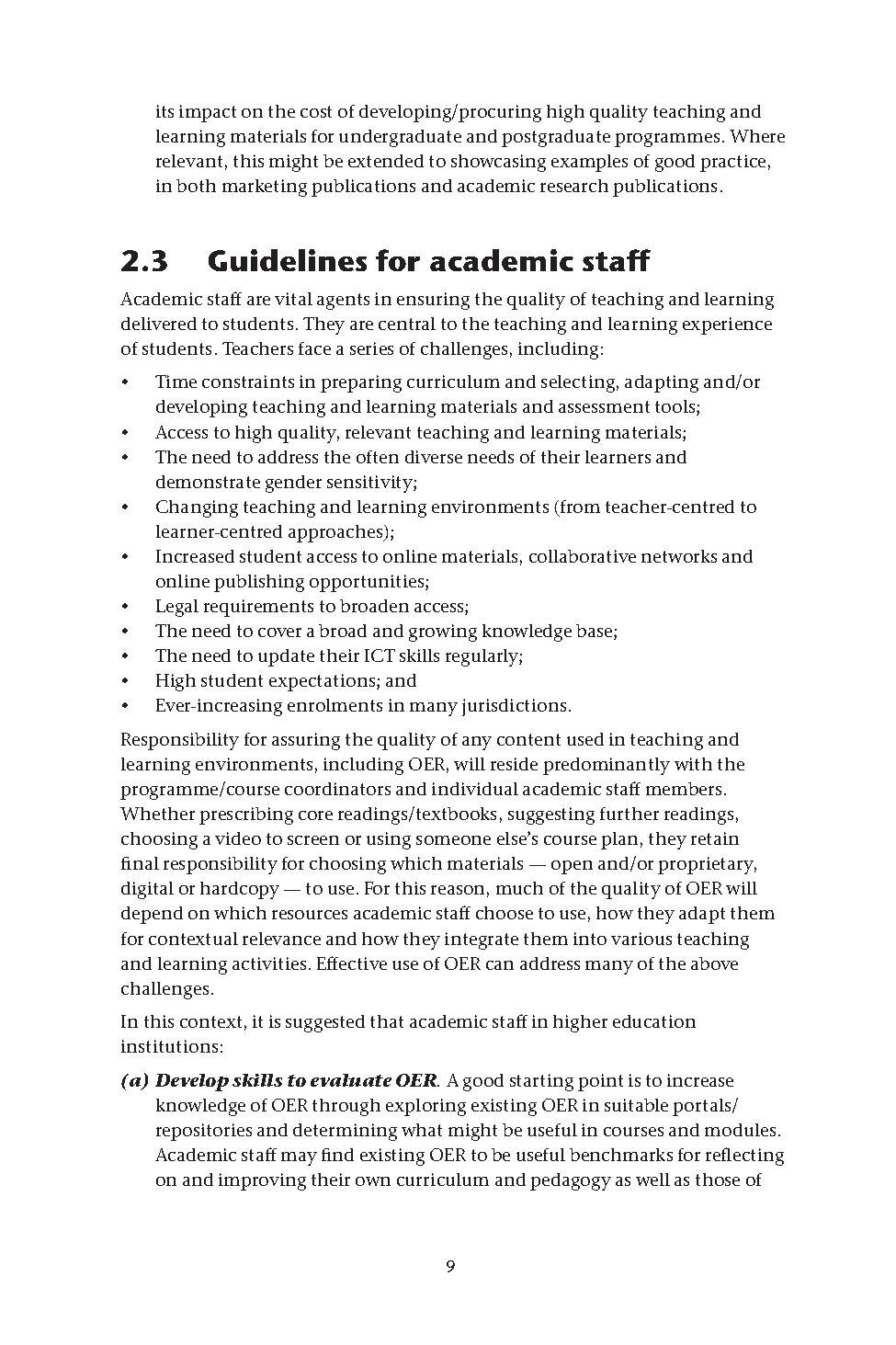- its impact on the cost of developing/procuring high quality teaching and learning materials for undergraduate and postgraduate programmes. Where relevant, this might be extended to showcasing examples of good practice, in both marketing publications and academic research publications.
2.3 Guidelines for academic staff
Academic staff are vital agents in ensuring the quality of teaching and learning delivered to students. They are central to the teaching and learning experience of students. Teachers face a series of challenges, including:
- Time constraints in preparing curriculum and selecting, adapting and/or developing teaching and learning materials and assessment tools;
- Access to high quality, relevant teaching and learning materials;
- The need to address the often diverse needs of their learners and demonstrate gender sensitivity;
- Changing teaching and learning environments (from teacher-centred to learner-centred approaches);
- Increased student access to online materials, collaborative networks and online publishing opportunities;
- Legal requirements to broaden access;
- The need to cover a broad and growing knowledge base;
- The need to update their ICT skills regularly;
- High student expectations; and
- Ever-increasing enrolments in many jurisdictions.
Responsibility for assuring the quality of any content used in teaching and learning environments, including OER, will reside predominantly with the programme/course coordinators and individual academic staff members. Whether prescribing core readings/textbooks, suggesting further readings, choosing a video to screen or using someone else's course plan, they retain final responsibility for choosing which materials—open and/or proprietary, digital or hardcopy—to use. For this reason, much of the quality of OER will depend on which resources academic staff choose to use, how they adapt them for contextual relevance and how they integrate them into various teaching and learning activities. Effective use of OER can address many of the above challenges.
In this context, it is suggested that academic staff in higher education institutions:
- Develop skills to evaluate OER. A good starting point is to increase knowledge of OER through exploring existing OER in suitable portals/ repositories and determining what might be useful in courses and modules. Academic staff may find existing OER to be useful benchmarks for reflecting on and improving their own curriculum and pedagogy as well as those of
9
